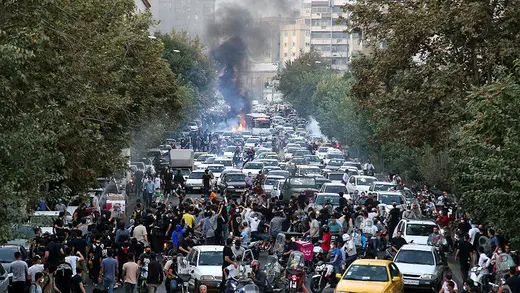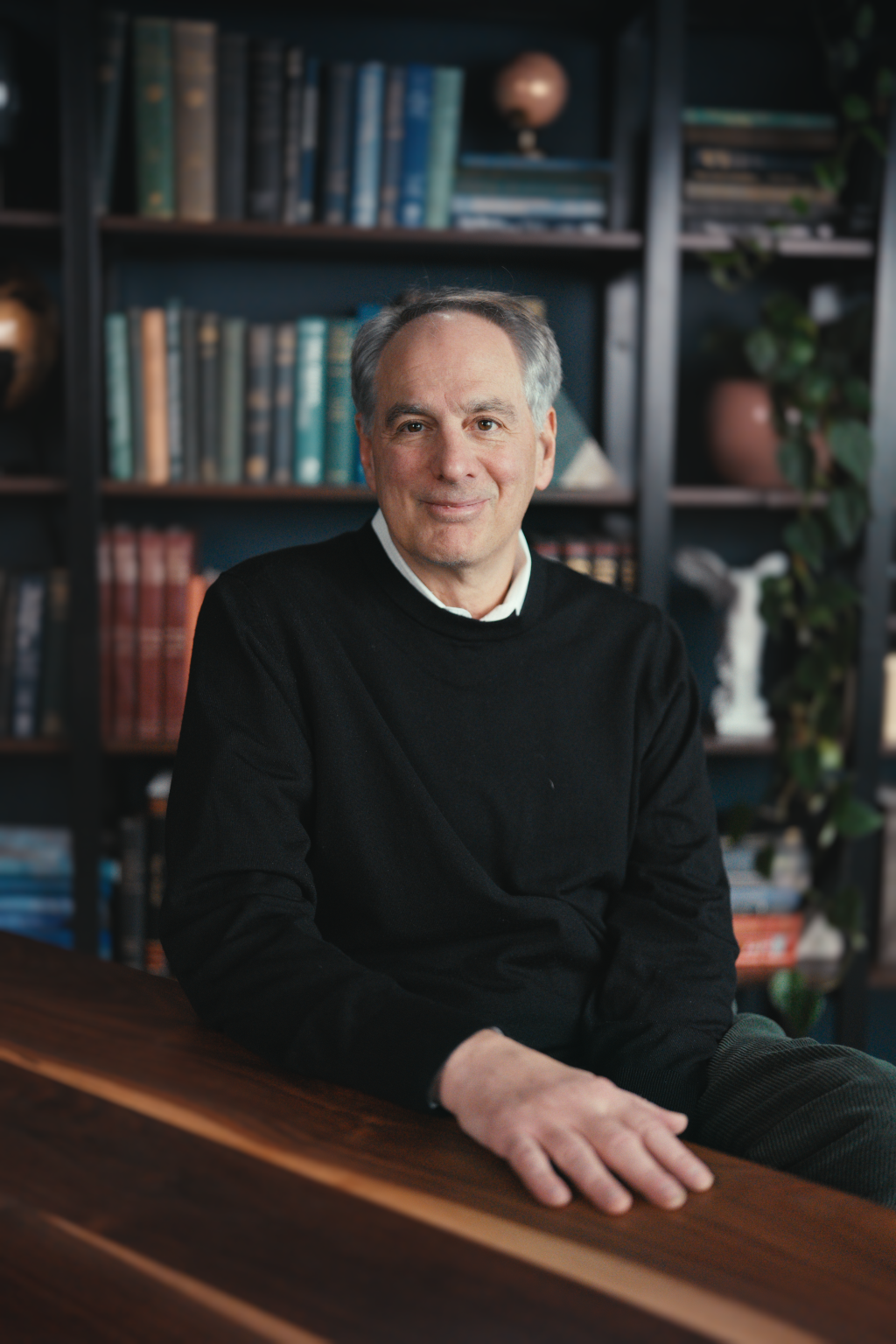Iran’s Protests, Raisi’s UN Speech, and Nuclear Deal Talks: What to Know
The death of Mahsa Amini has sparked large-scale protests in Iran. But President Raisi’s speech at the UN General Assembly signals that the regime is not likely to soften its stance toward the Iranian people nor toward the West.
By experts and staff
- Published
Experts
![]() By Ray TakeyhHasib J. Sabbagh Senior Fellow for Middle East Studies
By Ray TakeyhHasib J. Sabbagh Senior Fellow for Middle East Studies
Demonstrations are ongoing in Iran after a woman died last week in the custody of morality police. How significant are the protests?
Iranian women have been involved in previous protests, but these are notable for their vehemence in opposing regime policies. Still, these demonstrations on the whole should be thought of as part of a continuum of protests addressing a wide range of concerns. In just the past few months, Iran has been rocked by demonstrations prompted by economic grievances involving teachers, retirees, and farm workers, among other groups. Protests against economic conditions have become chronic in Iran, where inflation is running high and the government has weakened support for welfare and other social services. Such protests increasingly turn political in Iran as the regime seeks to tighten its grip.

In August, President Ebrahim Raisi signed a decree for more rigorous enforcement of rules requiring women to wear a hijab at all times in public, which have been in effect since the founding of the Islamic Republic in 1979. This move was widely acclaimed by conservative clerics who now dominate Iran’s appointed and elected institutions as a restoration of cultural standards that seemed to be slipping. The tragedy of Mahsa Amini’s death was almost inevitable. The twenty-two-year-old was arrested last week by morality police and charged with violating the country’s dress code. Amini’s family said she was in good health at the time of her arrest, while police released what they said is footage of her collapsing at the police station before she was declared dead at the hospital.
Will the regime crack down further, or might it offer gestures of accommodation?
The government usually deals with these protests through a mixture of measures. In this case, the president spoke with Amini’s family and called for an investigation to determine the cause of her death, and a representative of Supreme Leader Ali Khamenei also visited her family, although Amini’s father has accused the regime of a cover-up. At the same time, the regime has been quick to try to contain the demonstrations by arresting protest leaders and shutting off social media platforms that in the regime’s view act as a contagion. The latest move from authorities was to hold a counterdemonstration of regime supporters on Friday.
Raisi’s address to the UN General Assembly struck a defiant tone. Did he face pressure during his visit to the United Nations to soften the government’s treatment toward women?
Raisi and other hard-line leaders of the Islamic Republic show no deference to Western sensibilities. In his speech, Raisi condemned Canada’s treatment of Indigenous people, for instance, and accused Western nations of applying double standards on human rights. No member of the U.S. delegation at the United Nations walked out during his speech, as U.S. diplomats have done in previous UN addresses by Iranian leaders. Still, U.S. President Joe Biden and other Western leaders condemned the actions of Iran’s morality police, and the U.S. Treasury Department announced new sanctions against members of the force.
In his UN address, Raisi also said Tehran will not return to the 2015 nuclear deal without guarantees from Washington that the deal would not be suspended again. Is that what’s holding up the deal’s revival?
Iran seeks some form of guarantee whereby the lifting of severe sanctions and resumed business activities by Western firms cannot be disrupted if a future U.S. president rescinds the agreement. Additionally, Iranian officials have adamantly declared that the concerns of the International Atomic Energy Agency (IAEA) about illicit nuclear material found at three sites is fraudulent and that the agency’s investigation must close.
Raisi reiterated that Iran won’t seek to obtain a nuclear weapon. How credible is that assertion?
The Iranian government has long maintained that it is not seeking nuclear arms. But if Iran’s nuclear program continues to grow in terms of size and sophistication, it will soon be able to manufacture a bomb if it chooses.
The infrastructure needed for nuclear energy and atomic weapons are compatible and can be exploited for that purpose. The most recent IAEA report indicates that Iran continues to add advanced centrifuges to its inventory and accumulate more enriched uranium. The nuclear deal had limited the number and types of centrifuges Iran can operate to slow down the process of creating highly enriched uranium, which can be used in nuclear weapons.
